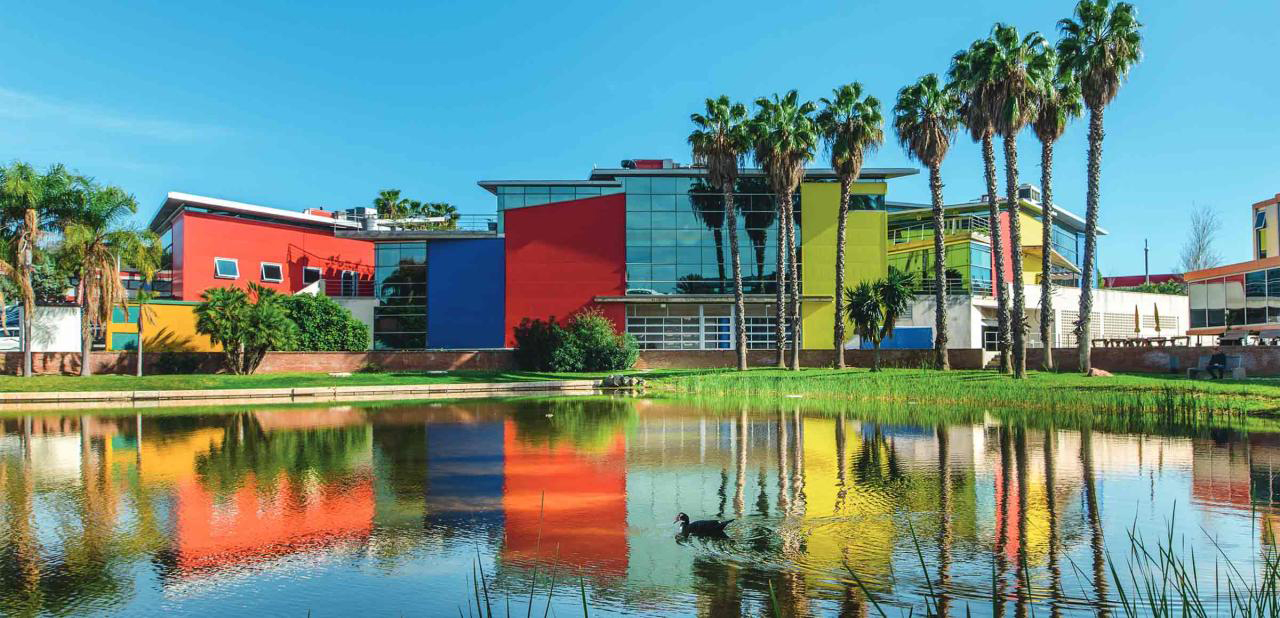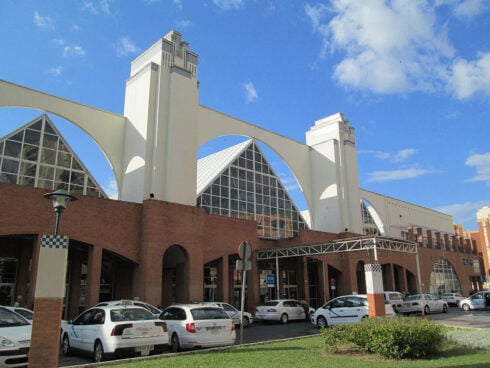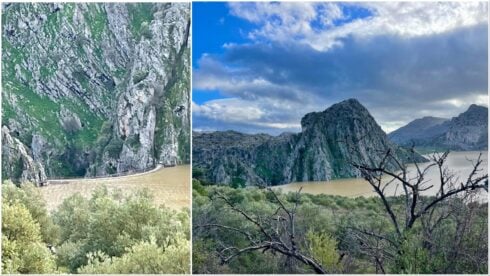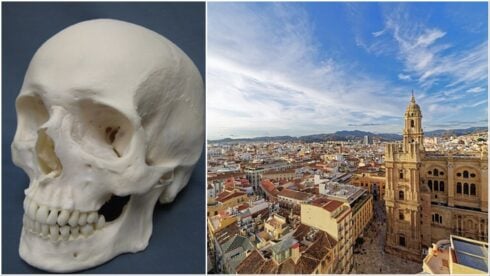QUALITY of life, 320 days of sunshine and superb sea views. Then add in good flight connections, affordable housing, and a rich cultural heritage, rooted in the Romans and Phoenicians and it’s no wonder Malaga is attracting dozens of global businesses each year.
But the city’s rapid transformation into one of the key tech hubs of the Mediterranean over the last decade also owes a lot also to coordinated teamwork, talent, and planning.
Andalucia’s key port city benefits from having a concerted strategy and long term plan, explains Marc Sanderson of the Foreign Direct Investment office (FDI), ‘and the stability of the mayor guiding the city’.
He adds: “The strategy has been to diversify the economy so Malaga is not overly dependent on tourism; not that we want to diminish tourism but to balance it with clean industries.
“A direct investment department is unique for a city of this size but Mayor Francisco de la Torre was visionary and wanted to promote the city as a tech destination at this level.
“Now, after ten years, the message is resonating globally.”
Last year saw the start of a boom, and an influx of big global tech corporations choosing Malaga as the location for research, development and innovation (R+D+I) centres.
While most parts of Spain and other parts of Europe struggled with the pandemic, Malaga’s population grew by over 17,000 people between January 2020 and July 2021… and digital nomads and remote workers make a significant part of that total.
“The pandemic added a paradigm shift by proving remote working was feasible,” continues Sanderson, an erudite American, who’s lived in the bustling coastal city for over two decades. “Businesses became a lot more flexible with their employees, and saw they were happier and more productive by doing it. They began looking for low-cost locations where quality of life was higher, and allows talented people to live in desirable places.

“Malaga ticks all the boxes. Citigroup’s recent decision to open a hub here is because they want their analysts to have a good work-life balance. That is a perfect example of the corporate mindset.
“While others were suffering we got a boost from the pandemic,” concludes the bilingual father-of-two. “But we’ve been working hard and it’s finally paying off. Luck is when preparation and opportunity meet. And Malaga is extremely prepared.”
TECH COMPANY BOOM
It was certainly a golden 2021 for Malaga, beginning in February when Google announced it would be building a Centre of Excellence for Cybersecurity in the city as part of a €530m investment to support the country’s digital transformation.
In May, Vodafone chose Malaga over a shortlist of eight other European cities for a €225m European R+D Centre dedicated to ‘Edge Computing, Open RAN and the Internet of Things’.
It prompted Spain’s Prime Minister Pedro Sanchez to tweet: “We are progressing to become a focal point for attracting talent, a benchmark in innovation and digital transformation. Congratulations to Malaga, which has been working in this industry for many years to achieve this opportunity”.
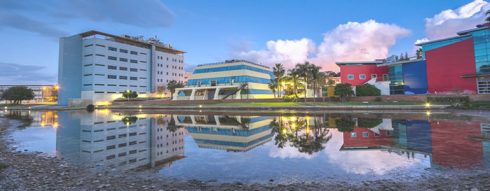
And the global tech firms kept coming. The Swedish wireless data solutions company Westermo recently chose the city for its first office in Spain, while Derivco from the Isle of Man has arrived to provide support to international partners in the online gaming sector.
Then there is venture capitalist company Startup Wise Guys, which launched a business accelerator program for video game and virtual reality startups at Polo Digital Malaga.
And, in an agreement brokered by the EU-China Science and Technology Committee Association, a leading Chinese sustainability company will open an R+D centre in Malaga TechPark dedicated to renewable energy, ‘robotics 4.0’, the development of car batteries and recharging points for electric vehicles.
The strong public-private collaboration and mutual support within the Malaga Valley area and ecosystem is a major factor for most of these firms.
International companies are aided by the office of FDI, which not only promotes the city as a business destination, but provides wide ranging services during the evaluation and setting up period, and maintains contact with regular events to help the international community stay connected.
Meanwhile, BIC Euronova offers specialised technical consultancy, financial advice and assistance with logistics and Promalaga helps to foster startups and companies choosing to locate in the specific TechPark area itself.
MALAGA TECHPARK
While Google is due to open its centre on the Paseo de Farola, the majority of tech companies, including DEKRA, Oracle, Ericsson, Siemens, Accenture, Huawei, Orange, Bombardier, and Globant, are concentrated in Malaga’s TechPark, on the city’s western fringes.
There are currently 624 companies in residence, 62 of them international, many in the AI, blockchain, big data and aeronautics sectors. Between them, they employ over 22,200 people and last year turned over collectively a staggering €2.3bn.
The park, formerly known as the Parque Tecnologico de Andalucia, first opened for business in 1992.
The past six years have been extremely busy; and now growth is snowballing: in the first half of 2021 alone, the TechPark received more than 30 new applications for space from companies from as far and wide as Germany, Finland and Sweden – as well as from Barcelona and Madrid.
Expansion plans are underway and the park sits just 12km from Malaga airport and 13km from the city centre.
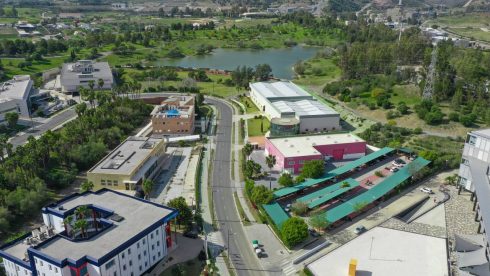
Sustainability, once a vague goal, is a mainstream requirement for large businesses with one-third of Europe’s largest public companies pledging to reach net zero by 2050. Companies locating to the TechPark have a chance of exceeding that goal: the park is the headquarters of the Spanish smart city industry and the ‘eCityMalaga’ project aims to make it the first sustainable urban space in the country by 2027.
More than 20 international tech companies have so far joined this initiative, including Accenture, DEKRA, Bettergy, and Lynka. The initiative not only enables companies to pursue their own goals, but generates new business opportunities for innovators working in the fields of renewables and alternative energy.
The park also has close links with its near neighbour Malaga University (UMA) and many of its resources are open to the park’s companies – including the IT and biotechnology facilities at the groundbreaking Supercomputing and Bioinnovation Centre. UMA research findings are shared via the Research Results Transfer Office (RRTO) located on the TechPark site.
TALENT POOL
The rapidly-growing university plays a vital role in Malaga’s economic development, turning out graduates with future-facing in-demand skills.
The idea is that companies like Vodafone (which plans to create 600 R+D jobs) won’t need to look far for data engineers, cloud developers, AI and blockchain experts.
Skill transfers go both ways: Malaga’s newly-arrived top tech giants are committed to sharing their own expertise.
Google will provide training and workshops in cybersecurity; Telefónica has partnered with the city hall to open ‘42 Malaga’, a non-traditional 24hr a day programming school; while Vodafone is partnering with universities, vocational schools, and local institutions to create an innovation hub around its new centre.

This is multiplying its impact and fostering ‘activity within the city and the digital ecosystem that has been developed in recent years,’ explains Vodafone Spain CEO Colman Deegan.
The pioneering National Digital Content Hub, opened in 2017, is another centre with a big, transformative impact. Full of the latest technologies in 3D animation, virtual reality and graphic design, the aim of this coworking and training facility is to build up Malaga’s media and entertainment sector, become the industry driver of digital content in Spain.
SUPPORT FOR START-UPS
The city ranked third in Spain for emerging high-potential startups in 2021, according to a report by El Referente, backed by Deloitte and Sabadell bank.
Malaga has already produced notable successes, among them indie App Store alternatives to Google and Apple, Uptodown, image bank Freepik (acquired last year for over €250m) by EQT, and football app BeSoccer, which employs 200, and last year turned over €10m.
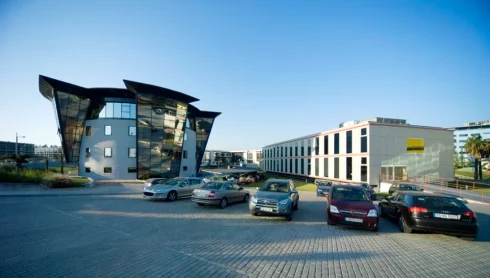
The next wave of startups is well supported by the city’s network of 13 business incubators. To ensure local entrepreneurs think global, international expertise is provided at the Green Ray building, and the new Malaga startup ecosystem database platform powered by Dealroom, connects bright prospects with potential partners and investors around the world.
VISIBILITY
A busy calendar of international conferences, forums and events showcasing success stories cements Malaga’s position as a tech hub.
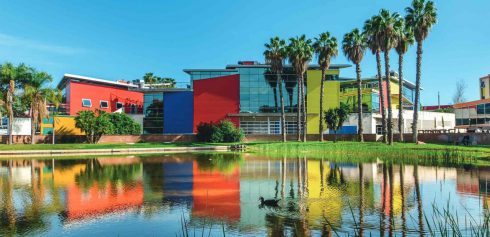
The Trade Fair and Congress Centre alone hosts more than 20 events a year, including Transfiere: the European Meeting on Science, Technology and Innovation and the GreenCities Forum of Urban Intelligence, and will be hosting the Digital Enterprise Show, billed as the world’s leading digital transformation event, this summer (June 14-16).
“Some 30 or 40 years and millions of euros have been spent promoting Malaga as a tourism destination,” concludes Sanderson. “Promoting Malaga as a tech destination is just in the infancy stage and look at what we’ve already achieved.”
Nomad numbers
? MalagaTech is also known and signposted as Parque Tecnologico de Andalucia (PTA)
? Location: 13km from centre, 12km from airport, 7km from the UMA university
? 624 companies with a 2021 turnover of €2.3 billion
? 62 foreign companies from 19 countries
? 22,238 employees from 30 countries
? More than 150 startups are based at the park
? The site features 410,000m2 of buildings in 900,000m2 of gardens, with nine restaurants, a helicopter landing pad and a sports centre
? Employee accommodation is under construction
Everything begins with an E
Think of ‘smart cities’ and chances are you’ll have a vision of houses with CO2-sucking algae walls, self-driving vehicles, vertical farms up the side of offices, and a hyperloop for 1000km/hr connections to other destinations.
Malaga, capital of Spain’s Smart City Cluster, might not be there yet, but plans are underway for the city to create a circular economy with ‘zero waste and zero emissions by 2027’.
Malaga City council, Endesa and the 21 international tech companies collaborating in the eCityMalaga project so far recently announced the actions they’ll be taking this year.
Among the highlights, the city is to get a circular economy academy dedicated to sharing knowledge accumulated so far on how companies can tackle climate change, pollution, and waste management and reuse and recycle resources.
There’s an emphasis on local and shared use: The first local energy communities will be introduced, with photovoltaic plants installed in parking areas and charging points for electric vehicles.
Meanwhile, a car-pooling service is to be launched aimed at non EV-drivers to reduce congestion and pollution.
Recycling and waste will be better managed with one-stop ‘ecological islands’ – areas with multiple containers allowing waste to be sorted at the point of disposal.
Finally the city will begin monitoring the pollution emissions and energy efficiency of over 200 buildings across the municipality so that tech teams can find ways to improve them.
MALAGA UPCOMING TECH EVENTS
at Malaga Trade Fair and Conference Centre (FYCMA)
April 27-29
J on the Beach [jonthebeach.com]
(Day 1, April 27, will be held at Polo Digital Content Malaga)
May 11-12
AOTEC, the National Association of Telecom and Internet Services Operators technology fair
June 14-16
Digital Enterprise Show (DES)
June 20-21
CM Malaga – Culture & Museums International Tech Forum
July 22-24
Gamepolis – video game festival
Sept 10
eCongress Malaga
Sept 21-22
GreenCities – Urban Intelligence and Sustainability Forum
Sept 21-22
S-Moving – Forum of Intelligent, Autonomous and Connected Vehicles
Sept 29-30
Smart Agrifood Summit
Oct 8
TEDxMalaga
Nov 2-3
Talent Women
Nov 29-Dec 1
Rail Live 2022
Dec 1-4
Mobile Week Malaga
READ MORE:
- ‘Digital Nomad visa’ and tax breaks: What we know about Spain’s plans to attract remote workers
- Autonomo: What you need to know about being self-employed in Spain
- Five incredible castles in Spain’s Malaga every history-lover should visit
Click here to read more Malaga News from The Olive Press.

